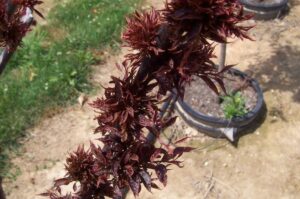Day 1 is in the books. Tomorrow we start again. Please join in via the following links.
Access for all morning sessions begins at 9am Tues Feb 23 here: https://go.rutgers.edu/iexg7ly5
Like Monday, once you’ve logged in you will be directed to ‘breakout rooms’ for each of the morning sessions. While you’re waiting please listen to a few welcoming remarks from our Interim Executive Dean Dr. Laura Lawson, Director of Rutgers Cooperative Extension Brian Schilling, NJDA Secretary Douglas Fisher, and Vegetable Growers Association president John Banscher, as well as some instructions and housekeeping rules. The program sessions will begin at 9:15am.
All links are also available for every session at vganj.com/schedule or the direct link to the agenda page is https://go.rutgers.edu/yw2aminv. NOTE that the morning sessions are all through the same link, but afternoon sessions each have a unique Zoom link that will be seen directly next to the agenda for that session.
If neither of those options work, here is the agenda and links for Tueday’s sessions:
2021 NJ Ag/VGANJ Virtual Convention – Educational Sessions Agenda
Tues Feb 23, 2021 – 9:15am-11:45am
Access ALL MORNING sessions HERE
https://go.rutgers.edu/iexg7ly5
Organic Production
9:15-9:30am-Welcome & Intro
9:30-10:00am-Soil Health & Organic Sweetpotato Production
10:00-10:30am-Managing Allium Leaf Miner for Organic Onions
10:30-10:45am-What’s New from Industry/Break
10:45-11:15am-Satisfying the Sulfur Needs of Crops
11:15-11:45am-Balancing Safety and Nutrition in Organic Foods
New Orchard Establishment I
9:15-9:30am-Welcome & Intro
9:30-10:00am-Overview of Resources Available to New Tree Fruit Growers in New Jersey
10:00-10:30am-Orchard Site Selection and Pre-Plant Preparation
10:30-10:45am-Web Soil Survey – An Efficient Tool to Understand Native Properties of the Soil
10:45-11:15am-Orchard Integrated Pest Management (IPM) Basics
11:15-11:45am-Orchard Management in the Early Years – Principles & Practices
Hemp
9:15-9:30am-Welcome & Intro
9:30-10:00am-Rutgers First Hemp Trials – Observations & Future Direction
10:00-10:30am-Marketing Considerations for Industrial Hemp Production in NJ
10:30-10:50am-Laboratory Services for the Hemp Industry in New Jersey
10:50-11:15am-Hemp Diseases in NJ – What We Know
11:15-11:45am-Hemp Production in NJ – Challenges & Opportunities (Panel Discussion)
2021 NJ Ag/VGANJ Virtual Convention – Educational Sessions Agenda
Tues Feb 23, 2021 – 12:00pm-1:00pm
Access AFTERNOON sessions individually
Pesticide credit sessions require logging in within 10 minutes of start and remaining through the entire session
to be eligible for credits.
Pesticide Regulatory Review for Pesticide Applicators, Businesses,
and Agricultural Employers
https://go.rutgers.edu/cl0zmui7
(1 hour for 2 CORE credits)
Pat Hastings
A thorough review of regulatory requirements for pesticide applicator certification, recertification, and licensing
in New Jersey, including administrative changes to license renewal processes.
Tues Feb 23, 2021 – 1:00pm-3:45pm
Weed Control
https://go.rutgers.edu/p4yk2e17
(pesticide recertification credits: 4 Cat 1A; 4 Cat 10; 4 PP2)
1:15-1:30pm-Welcome & Intro
1:30-2:00pm-Weed Management Update for Row crops
2:00-2:30pm-Electrical Weeders & Potential Use in Specialty Crops
2:30-2:45pm-What’s New from Industry/Break
2:45-3:15pm-Taking Advantage of Plant Weaknesses for Improved Weed Control
3:15-3:45pm-Weed Management Update for Vine Crops
New Orchard Establishment II
https://go.rutgers.edu/iexg7ly5
1:15-1:30pm-Welcome & Intro
1:30-2:00pm-Panel Discussion-Growers’ Perspectives on Delving into Tree Fruit Production
2:00-2:30pm-Organic Apple Production – Is it Feasible in NJ?
2:30-2:45pm-What’s New from Industry/Break
2:45-3:15pm-Economics of Tree Fruit Production
3:15pm-Q&A/Adjourn
Specialty Crops
https://go.rutgers.edu/rxr924oy
(pesticide recertification credits: 1 CORE)
1:15-1:30pm-Welcome & Intro
1:30-2:00pm-Using Demographic Information to Identify Specialty Crop Markets
2:00-2:30pm-African Marigolds for Fall Markets
2:30-2:45pm-What’s New from Industry/Break
2:45-3:15pm-New Crops – RU Hot Peppers & More
3:15-3:45pm-Pesticide Safety & Regulatory Update for 2021
NJ Dept Health
Training Required for Farmers/Market Managers





